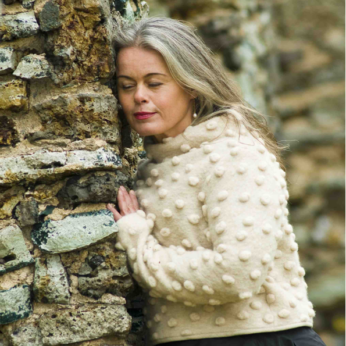Composer: John Dowland (b. 1563 - d. 1626)
Performance date: 01/07/2014
Venue: St. Brendan’s Church
Composition Year: 1597
Duration: 00:02:19
Recording Engineer: Richard McCullough, RTE
Instrumentation Category:Duo
Instrumentation Other: S-solo, lu/gui
Artists:
Concerto Copenhagen (Peter Spissky, Fredrik From, Antina Hugosson [violins], Torbjörn Köhl [viola], Kate Hearne [cello], Mattias Frostenson [bass], Fredrik Bock [archlute, guitar], Lars-Ulrik Mortensen [harpsichord, director]) -
[baroque ensemble]
Maria Keohane -
[soprano]

Dowland’s address
to the courteous Reader in his First Booke of Songes could stand for
many of those who offer their creations to the public eye or ear. How hard an enterprise it is in this
skilfull and curious age to commit our private labours to the publicke view,
mine owne disabilitie and others hard successe doe too well assure me: and were
it not for that love I beare to the true lovers of musicke, I had concealde
these my first prints, which how they will thrive with your taste I know not. He
had no need to worry; the Songes were
a huge hit and had to be reprinted at least four times.
Posterity has
described him as one of England’s greatest song composers alongside Purcell and
Britten, but for most of his life he had to seek employment abroad as the
English Court continually rejected him, so he perforce became one of England’s
most widely travelled and celebrated composer-performers. He did not take
kindly to this rejection and used the prefaces to his published works to
complain about the injustices of his life, the shortcomings of rival composers
and musicians and the inadequacies of the late Elizabethan world, doubtless
making himself yet more enemies in the process. He spent many years on the
continent and from 1598-1606 was generously employed by King Christian IV of Denmark,
who was bemused that such beautiful music could come from so agitated a soul.
On being remonstrated with he would reply that music can only be born out of
fire and fury. He was known throughout Europe as the English Orpheus, but did
not receive royal recognition is in his own country until he was almost fifty.
Our own age has
responded to the romantic isolation of many of his songs, the individual voice
alienated from society expressing many of our deepest anxieties. His personal
motto semper Dowland semper dolens encourages
a not entirely justified gloomy interpretation of his works. His texts are
fabulous, some of them highly suggestive in the Elizabethan manner, and we know
not who wrote them. The melodies are not only gorgeous but are wonderfully crafted.
The words may seem black but the beauty of the music tells another story.
As with all verse
and lyrics from the Elizabethan and Stuart era, the double entendre and the hidden meanings, both political and sexual,
should be sought out. Come again seems
so cheerful but in fact contrasts the longed-for joys of love with the
hopelessness of not possessing them. The secret to understanding Can she excuse my wrongs is its
sub-title Earl of Essex, his Galliard. The
galliard was a lively and athletic dance, known to be Queen Elizabeth’s
favourite, and the Earl of Essex was for a long time a close advisor of the
Queen, but flew too near the sun and was beheaded for treason, adding some bite
to the final stanza. The King of
Denmark’s Galliard was an arrangement of an earlier Battle Galliard, probably made to propitiate the King after Dowland
had been absent without leave from the Danish Court. What poor astronomers shows clearly that Dowland did not suffer
fools gladly with a jocular and bawdy text. Flow
my tears is a poem of unrelieved gloom with text and music of unmatched
beauty. Dowland’s famous Lachrimae or
Seven Teares figured in Seven Passionate Pavans consists of a monumental
set of variations on the pavan that inspired Flow my tears – so successful was it that the doleful melody
permeated Elizabethan musical and literary culture.
Copyright © 2024 West Cork Music. All rights reserved.
Designed and developed by Matrix Internet